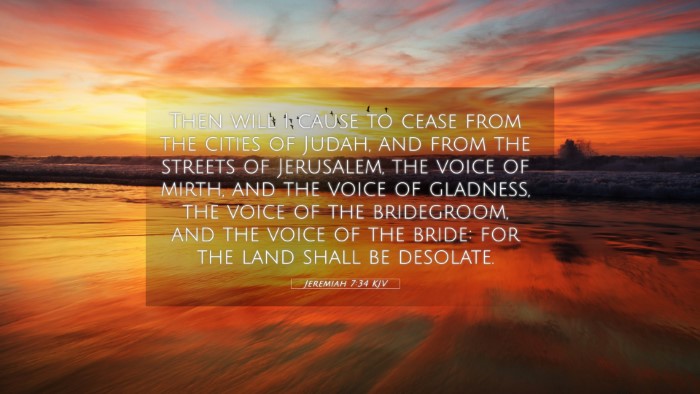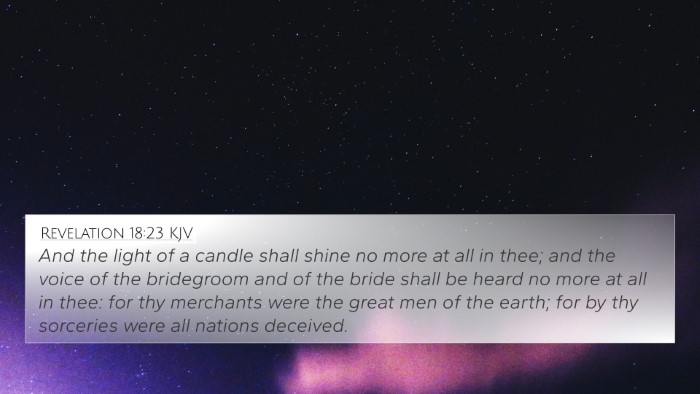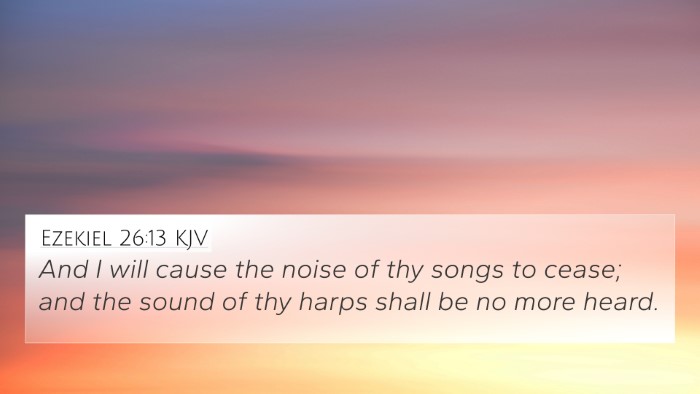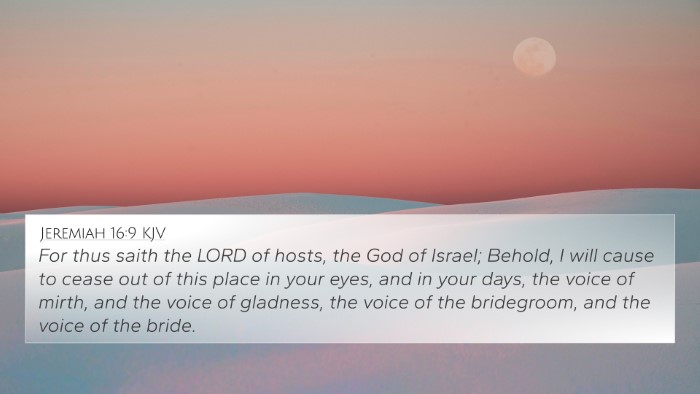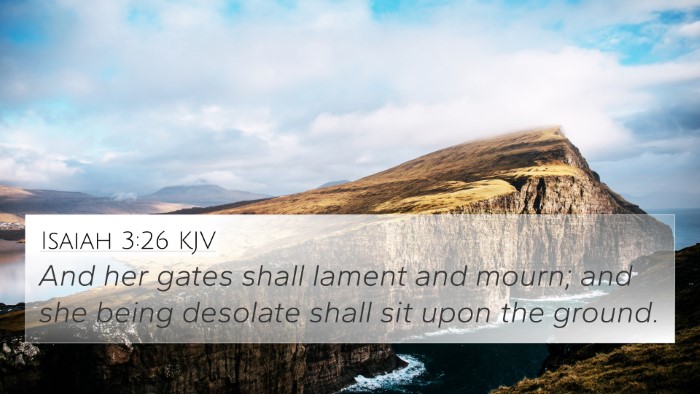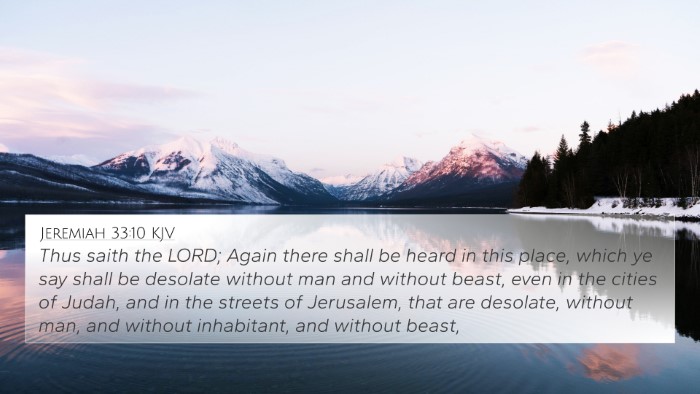Understanding Jeremiah 7:34
Verse: "Then I will cause to cease from the cities of Judah, and from the streets of Jerusalem, the voice of mirth, and the voice of gladness, the voice of the bridegroom, and the voice of the bride: for the land shall be desolate."
The book of Jeremiah conveys divine warnings and prophecies aimed at the people of Judah, emphasizing the consequences of their disobedience to God. In this verse, God expresses a profound sorrow due to the persistent unfaithfulness of His people. This profound statement encapsulates themes of judgment, lamentation, and eventual desolation.
Commentary Insights
-
Matthew Henry:
Henry emphasizes the emotional and spiritual implications of the absence of joy and celebration in the land. The cessation of mirth and gladness represents God's judgment and the dire consequences of rebellion against Him. He notes that weddings—signifying joy and communion—are rendered useless in a desolate land.
-
Albert Barnes:
Barnes underscores the comprehensive nature of the judgment, indicating that every aspect of joy and celebration will be removed. He relates this to the divine discipline that reflects God’s displeasure with a people who have turned away from His laws and have engaged in idolatry and sin.
-
Adam Clarke:
Clarke notes that this prophecy speaks not only of physical desolation but also of spiritual emptiness. The absence of gladness symbolizes God’s judgment and signifies the end of normal society's functions as they turn to pagan rituals instead of faithfully worshiping God.
Key Themes and Lessons
- Judgment: The verse reflects God's righteousness in administering consequence to persistent sin.
- Desolation: It serves as a warning that continued rejection of God leads to spiritual barrenness.
- Divine Absence: The absence of joy illustrates the severed relationship between God and His people due to sin.
- The Importance of Faithfulness: Joy in life comes from a proper relationship with God, and disobedience leads to suffering.
Related Bible Cross-References
- Isaiah 24:7-11 - Reflection on the end of joy in the land due to sin.
- Lamentations 5:15 - A lament over the loss of joy and gladness in Jerusalem.
- Ezekiel 26:13 - God's warning of desolation that would silence the sounds of joy.
- Revelation 18:23 - The finality of desolation and the end of celebrations in a fallen world.
- Amos 8:10 - Expressing sorrow in the land as a metaphor for God’s judgment.
- Zephaniah 1:10-11 - Depicts the cry of desolation prevailing over the land.
- Matthew 22:2 - The parable of the wedding feast and the importance of preparation for joyfulness.
- Luke 14:27-30 - The cost of discipleship and the seriousness of responding to God’s call.
- Isaiah 59:2 - The separation caused by sin affecting joy and gladness among God’s people.
- Hosea 2:11 - A divine promise to remove celebrations because of unfaithfulness.
Cross-Referencing Insights
The themes of desolation in Jeremiah 7:34 echo throughout both the Old and New Testaments. Examination of these connections enhances the understanding of God’s nature in dealing with sinful humanity. Tools for Bible cross-referencing can be essential in this pursuit of understanding biblical themes.
By identifying connections between Old and New Testament scriptures, we can appreciate the comprehensive narrative of God’s plan for redemption and the severe implications of disobedience.
Tools for Bible Cross-Referencing
- Bible Concordance
- Bible Cross-Reference Guide
- Cross-Reference Bible Study
- Bible Chain References
- Comprehensive Bible Cross-Reference Materials
Conclusion
In Jeremiah 7:34, the message of loss and desolation prompts believers to reflect on the significance of living in accordance with God’s will. The absence of joy serves as a potent reminder of the consequences of turning away from God. Students of the Bible can greatly benefit from engaging in comparative Bible verse analysis, linking scriptures together to find deeper meaning and understanding.
To explore more, consider a thorough study of related verses and thematic connections, which can be acquired through diligent use of cross-referencing biblical texts.

